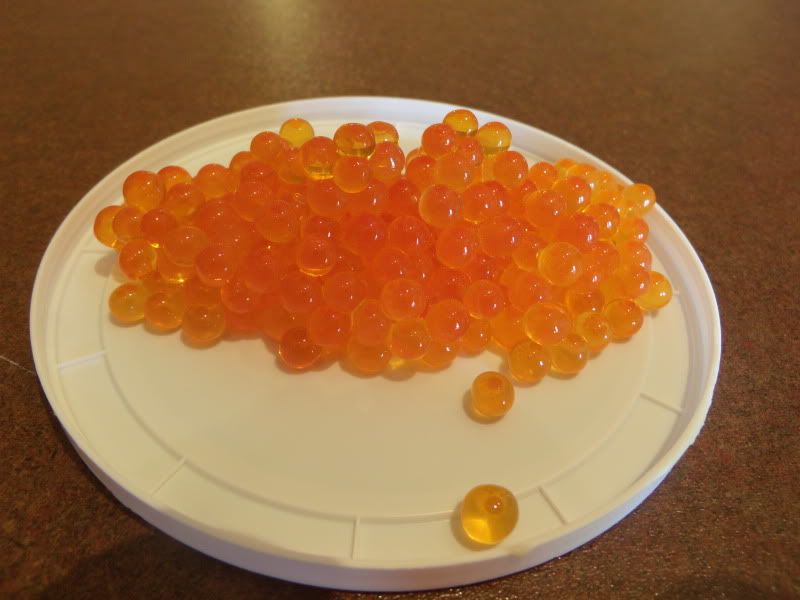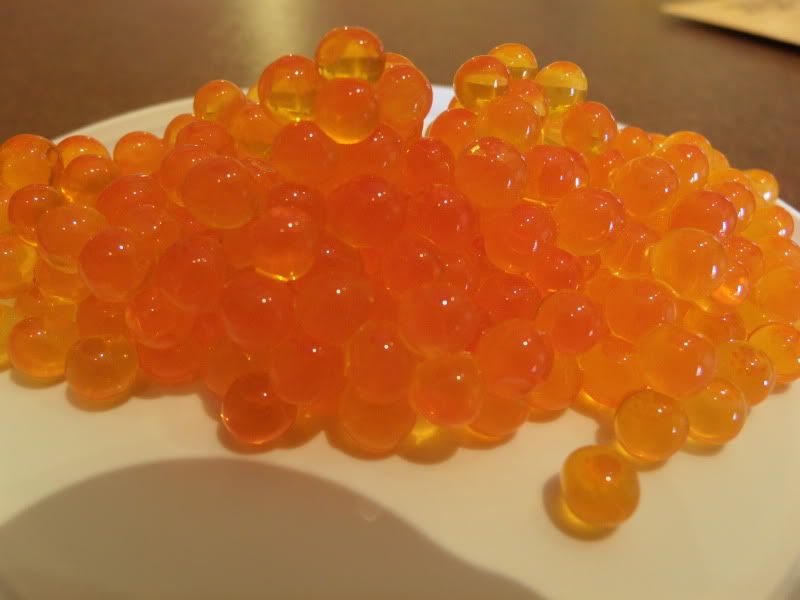Not only is the ROE GOOD!
The photography and detail to presentation is PERFECT! lol
Good job on the details!
MMMMMMMMMMMMMmmmmmmmm.......
Setting the Stage For Perfect Food Photography By Neil S Adams When photographing food, unlike other forms of photography, a good food photographer is looking to stimulate a number of senses. It is therefore not sufficient to create a photograph that is just visually stunning; with food photography the image needs to literally make your mouth water.
There are some useful tips that food photographers use for getting that perfect visual, as well as that element of 'taste' into food photography: The background is kept simple so that the eye is not drawn away from the food. Plain white or lightly patterned paper or uncluttered backgrounds are used to help focus the image.
Any accessories are chosen carefully. Silverware place settings and candles provide traditional sets, around which to frame the food. They always choose the very best food they have, so focus on quality rather than quantity.
If using fruit as part of the set, a good food photographer will make it glisten to look as though it has just been picked from a tree.
Garnishes are used that will complement the dishes. Citrus fruits always look good with Thai food and fish particularly; chopped chives can be scattered on soups and small bowls of different sauces introduced into the frame to give the composition added interest and depth.
The food photographer will often use only one zoom length and play around with different angles. Their shot will be creative rather than predictable where angle shots can look better. Using a digital camera means they can experiment as much as they like.
Most photographers use composition techniques, such as the rule of thirds. By dividing the image into a nine part grid, the lines cross at four points on the grid and this is where the food photographer places the food subjects. When viewing photographs or pictures, the eye automatically goes to one of these intersections, so the viewer then focuses on what the food photographer wants them to see. It also helps to create a well balanced photograph.
Food photography, like still life, means that the subject is static, so the food photographer takes advantage of this fact and takes time to get the shots exactly right.
Although most food photography is stage set, food photographers always take their camera with them on the off chance that they may secure a good shot. They will always have a good selection of lenses, use as much soft and natural light as possible - in addition, they generally don't use a flash as it can make food look shiny and unappetizing. If they want to take pictures at night, to capture the romance and gentleness of candle light for example, they will use an ISO or digitally 'slower' camera.
Finally, to get that true culinary experience, they will get a number of run up shots that take account of the ingredients, the preparation and the cooking before taking the 'final shot' of the finished plate. In this way, they will have captured the whole food experience that not only feasts the eye but feasts all the other senses too.



















